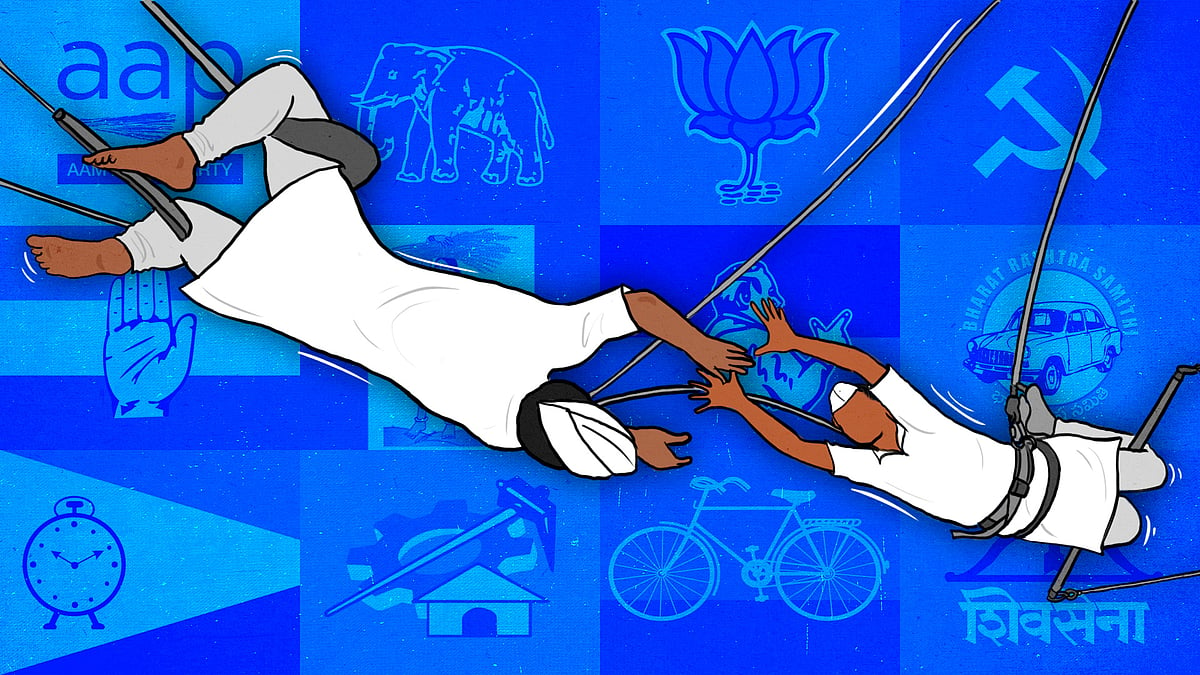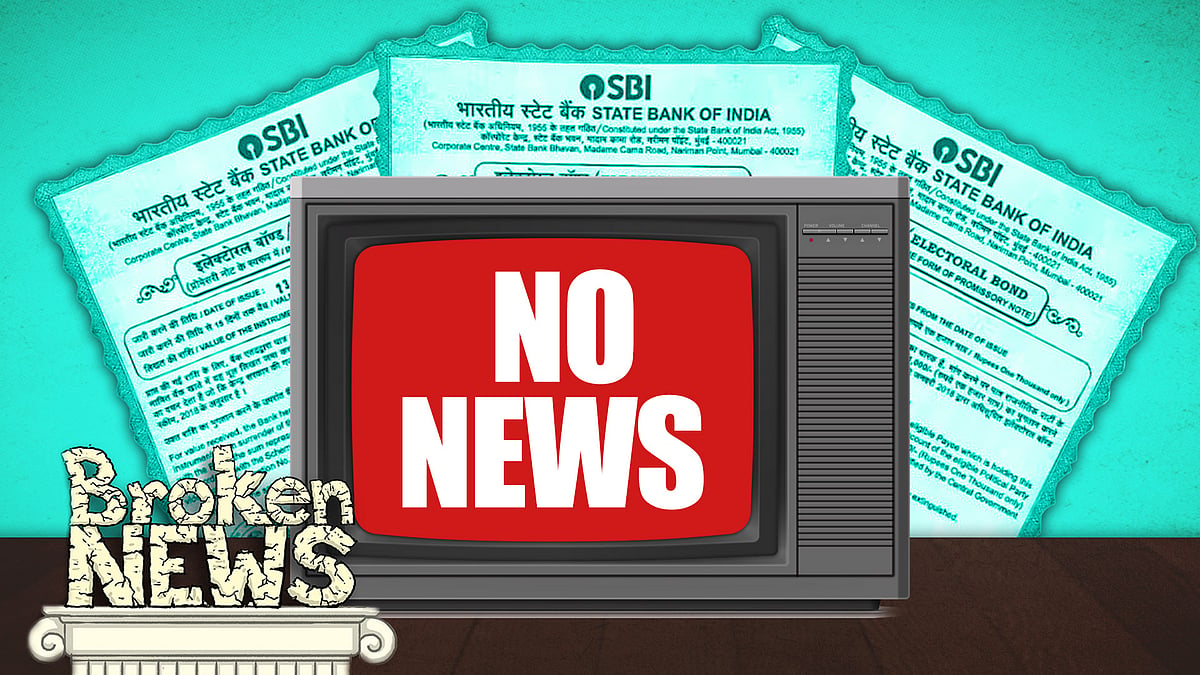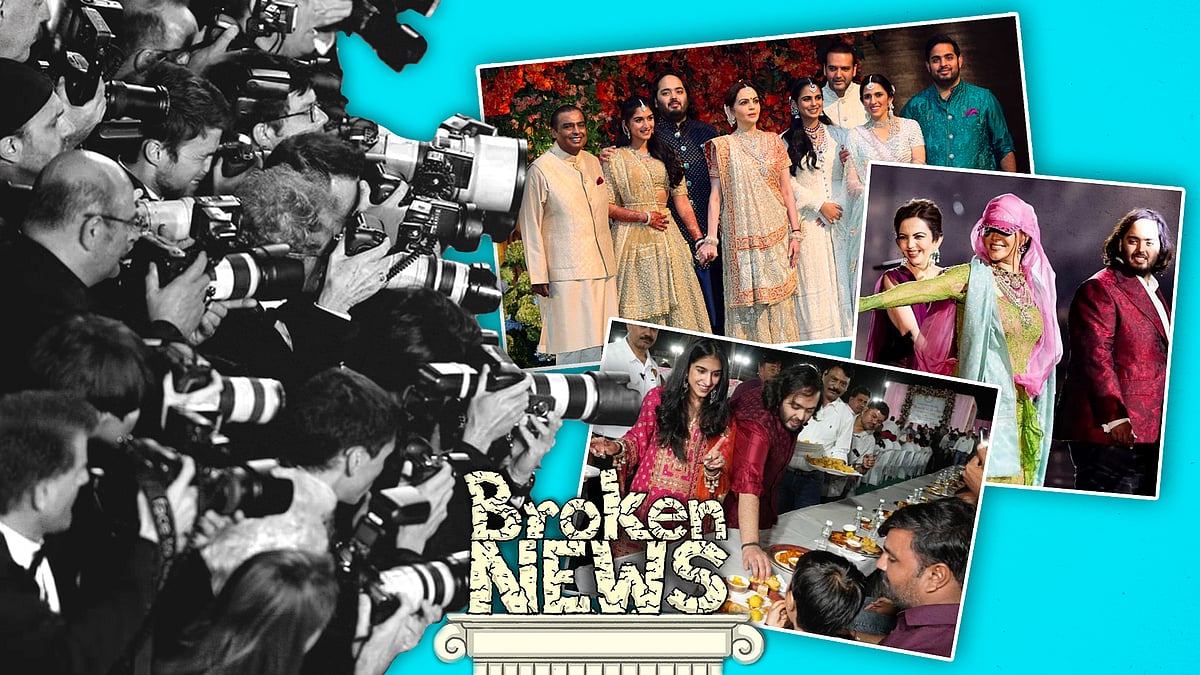Inside Indian polls: Modi’s lies, fake news and media that does not question
Modi has been on a spree of ‘interviews’ with no interruptions, follow-ups, or counter-questions.
As the subcontinent heats up, literally, the attitude of the average voter towards the election process that has begun appears relatively cool. From the reports that have emerged so far, there seems to be a singular lack of excitement, even among first-time voters. There is no “hawa” yet of the kind Indian electors are familiar with, at least not so far.
Given the rising temperature across the country, only committed party supporters and those lured by a free meal or some other enticement are likely to brave the heat to attend election meetings.
So how are voters, especially those not certain who they will support, getting information that will help them decide? Are the reports in mainstream media – mostly political speeches by Prime Minister Narendra Modi and other prominent members of his cabinet and party, Rahul Gandhi and others in the opposition alliance, and the occasional ground report – enough to convince the undecided?
As I mentioned in my last column, the media today is not just mainstream TV news channels and newspapers. We now live in a world where people get their information from multiple sources, including social media. Whether mainstream media takes the trouble to report diverse voices and opinions or not, these are out there on social media.
We have many independent digital news platforms and channels, although if you are a person who principally gets news from mainstream media, when you listen and read what they report, you might think they are reporting from a parallel universe.
The other alternate universe is of fake and misleading news, of hate speech, of the deliberate twisting of facts to push forward a particular narrative.
An important new documentary on fake news in India is worth a watch. Titled “India’s war on fake news: How disinformation became India’s #1 threat”, the documentary asks: “Why has fake news transformed into an industry in India?” And to answer that question, it meets internet trolls, “to understand the financial and ideological motives that compel them into becoming agents of misinformation.” The documentary also features fact-checkers who are trying to counter this growing menace of fake news.
While this surfeit of information and opinion is swirling around on social media, what are we seeing on mainstream media?
Mainstream media reports but does not question. For instance, why are we not asking the BJP, with its slogan “Abki baar 400 paar”, where the additional seats are coming from? Or, for that matter, question Rahul Gandhi, who claims the BJP will only get 150 seats. Between these two inflated claims lies the reality that the media ought to be prodding and probing to unearth and report.
Instead, we are being treated to “exclusive” interviews with the prime minister, which are nothing more than a public relations exercise. I am referring here to the hour-long interview that the prime minister granted to Smita Prakash, editor-in-chief of ANI. Given that Modi has been notoriously reticent about speaking directly to the press in the 10 years that he has been the prime minister, why is he speaking now?
When you watch the interview, you know why. Prakash asks questions and waits patiently while the long answers from Modi are recorded. There are no interruptions, follow-ups, or counter-questions, even when Modi is straying far from the truth. Many people would have seen the interview, as it was relayed on all channels and reported in print.
The most obvious question, that was screaming to be asked, was on electoral bonds. The prime minister claimed, as he has been doing recently, that the entire scheme was his idea, and was a success. That it brought transparency to election finance. And that unfortunately now, we would be back to the bad old days of black money.
The word “Supreme Court” did not emerge from either the lips of the interviewer or the interviewee. Extraordinary, given the apex court declared the entire scheme “unconstitutional”. And in a process akin to extracting teeth, had to compel the State Bank of India to reveal all the data on who purchased the bonds and which political party encashed them. Independent digital platforms like the Reporters’ Collective and the Electoral Bond Project, run jointly by The News Minute, Newslaundry, Scroll and independent journalists, were central to analysing the data and revealing the clear quid pro quo.
Instead of questioning Modi, this was brushed over. And the prime minister also got away with stating “facts” that can only be called fiction. He said 16 companies that bought electoral bonds were raided by the Enforcement Directorate, and 67 percent of their donations went to opposition parties. Which companies were these? Prakash should have asked. And what about the many more companies whose donations went to the BJP following raids on them?
Perhaps it is pointless to labour these points, as one could not have expected any such interview to be permitted if difficult follow-up questions were going to be asked. ANI provided Modi with a perfect election platform just days before the first round of voting. Everyone was happy. The agency got its “exclusive”, and Modi said what he wanted to say without interruption.
What is more puzzling, though, is how an apparently reputed international journal, Newsweek, could run an “exclusive” with Modi that reads like a series of press releases strung together. It is an “interview” without any questions. And it is the cover story that has Modi’s face and, in capital letters, the word “Unstoppable”.
Here are just two examples from this “interview” that illustrate the point I am making:
On religious minorities who complain of discrimination
These are usual tropes of some people who don't bother to meet people outside their bubbles. Even India's minorities don't buy this narrative anymore. Minorities from all religions, be it Muslim, Christians, Buddhist, Sikh, Jain or even a micro-minority like Parsis are living happily and thriving in India.
On democracy and a free press
We are a democracy, not only because our Constitution says so, but also because it is in our genes.
There are a few people in India and in the West who have lost [connection with] the people of India—their thought processes, feelings and aspirations. These people also tend to live in their own echo chamber of alternate realities. They conflate their own dissonance with the people with dubious claims of diminishing media freedom.
“Dubious claims of diminishing media freedom”? That demands a counter question. But then, there were no questions even though three people, including the CEO of Newsweek, met the prime minister.
In the annals of international journalism, this interview will surely be remembered for some time.
There is, however, a way around the insistence by the Prime Minister’s Office for questions in advance that are vetted before an interview is granted.
The Financial Times, headquartered in London, interviewed Modi before the general elections were announced and shortly after the state assembly elections, where the BJP did well. Written up as a report rather than in a question-and-answer format, it’s worth reading. Clearly, some tricky questions were asked, and Modi’s responses to them demonstrate his ability to deflect and detract from uncomfortable issues.
For instance, FT asked about the future of the Muslim minority in India, a question that any interviewer, Indian or foreign, would ask. I quote from the article:
When asked what future the Muslim minority has in India, Modi points instead to the economic success of India’s Parsees, who he describes as a “religious micro-minority residing in India”.
“Despite facing persecution elsewhere in the world, they have found a safe haven in India, living happily and prospering,” Modi says, in a response that makes no direct reference to the country’s roughly 200mn Muslims. “That shows that the Indian society itself has no feeling of discrimination towards any religious minority.”
The most charitable response to such an answer is: Disingenuous and inventive.
Coming back to the ANI interview, the problem with this type of journalism, which fails to probe and provoke, is that it allows a politician to get away too easily. Furthermore, given the way people in India tend to believe anything said by a person in authority, what Modi says, when it is not countered, becomes the truth for most people. After all, the prime minister of India has said this, as an ordinary person would think. Surely, he will not lie.
But he does, as the inimitable The Deshbhakt Akash Banerjee calls out in this video.
 When politicians change sides: Welcome to India, land of political acrobatics
When politicians change sides: Welcome to India, land of political acrobatics Electoral bonds, pre-poll coverage from ground zero: Why is Big Media missing big stories?
Electoral bonds, pre-poll coverage from ground zero: Why is Big Media missing big stories? Coverage of Ambani ‘pre-wedding’ tells you everything that’s wrong with the media today
Coverage of Ambani ‘pre-wedding’ tells you everything that’s wrong with the media today